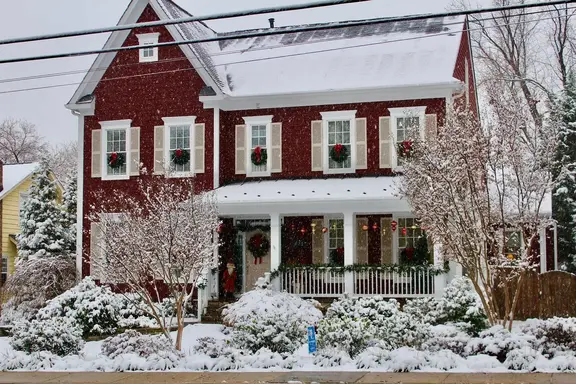Keeping your solar power systems at peak performance during the summer months not only maximizes energy efficiency and savings but also extends the lifespan of the equipment. Like any complex energy storage system, they require regular maintenance to operate efficiently, especially during the summer when the sun’s rays are most potent. Maintaining solar panels and hybrid inverters can seem dauting, but with the right approach, it’s quite manageable. Let’s dive into some critical maintenance tasks and tips.
Summer Solar Panel Maintenance Tasks
Solar Panel Cleaning
Solar panels work best when they’re clean. Dust, pollen, bird droppings, and other debris can significantly reduce the panels’ efficiency by blocking sunlight. The optimal cleaning frequency for solar panels during the summer months can vary significantly.
 Key Factors For Cleaning Frequency
Key Factors For Cleaning Frequency
- Location: Areas with high levels of dust, pollen, or industrial particulates might necessitate more frequent cleaning.
- Weather Patterns: In regions that receive little to no rainfall during the summer, manual cleaning becomes more crucial as there is less natural washing of the panels.
- Tilt Angle of Panels: Solar panels installed at a steeper tilt angle are less likely to accumulate dust and debris and therefore may require less frequent cleaning compared to those installed at a lower tilt angle.
- Performance Monitoring: Monitoring the performance of your solar panels can also guide the cleaning schedule. A noticeable drop in efficiency might indicate the need for cleaning.
General Guidelines for Summer Cleaning
- Minimal Dust Areas: In locations with minimal dust or debris, cleaning once at the beginning of the summer should remove any accumulation from the previous seasons.
- Moderate Dust Areas: For areas experiencing moderate levels of dust or pollen, checking monthly check is for build-up or debris is best.
- High Dust Areas: In very dusty or polluted environments, solar panels might require cleaning every two weeks to maintain optimal performance, especially if the summer months are dry and without rain.
How to Perform Cleaning
Use a soft brush or a non-abrasive sponge with mild soapy water to gently clean the panels. Alternatively, a garden hose can rinse off most dirt. However, avoid cleaning during the hottest part of the day to prevent sudden temperature changes that could damage the panels.
Solar Panel Shade Monitoring
Shading on solar panels can significantly reduce their efficiency and overall energy output. To ensure your solar panels operate at their peak performance, it’s crucial to regularly check for and address any shading issues.
Visual Inspection
- Observe at Different Times of the Day: Since the sun’s position changes throughout the day, shading patterns will also vary. Inspect your solar panels during early morning, noon, and late afternoon to identify any potential shading from trees, buildings, or other obstacles.
- Seasonal Changes: Remember that the sun’s path changes with the seasons. A spot that receives full sun in summer might be shaded in the winter. It’s wise to perform these inspections periodically throughout the year.
- Hiring a Professional: For a comprehensive analysis, consider hiring a solar energy consultant or a professional solar installer to accurately map out the sun’s path and identify potential shading issues, sometimes even predicting future problems as nearby trees grow or new buildings are constructed.
Inspect for Damage
Inspecting solar panels for damage is a crucial aspect of maintenance to ensure they operate efficiently and safely. Damage can occur from environmental factors, physical impact, manufacturing defects, or wear and tear over time.
Look for Physical Damage:
- Cracks or Breaks: Check for visible cracks or breaks in the glass. Even small cracks can affect the panel’s performance.
- Frame Damage: Inspect the frame for any signs of corrosion, bending, or breakage.
- Burn Marks or Discoloration: Look for any burn marks or discoloration on the panel surface, which could indicate issues with the cells or wiring.
- Check Connectors and Cables: Inspect all connectors and cables for signs of damage, such as fraying, cuts, or exposed wires. Also, ensure all connections are tight and secure
Summer Hybrid Inverter Maintenance Tasks

- Physical Damage: Examine the inverter’s exterior for any signs of physical damage, such as cracks, corrosion, or water ingress. These can compromise the inverter’s functionality and safety.
- Inspect Cooling Vents: Ensure that the inverter’s cooling vents are not blocked by dust or debris. Overheating can reduce the efficiency and lifespan of the inverter.
- Discoloration or Burn Marks: Notice any discoloration or burn marks around the inverter components, which could indicate overheating or electrical issues.
- Secure Connections & Wiring: Verify that all electrical connections to and from the inverter are secure and check for frayed, damaged, or exposed wiring. Repair or replace any compromised wiring; these can lead to inefficiencies or safety hazards.
- Update Firmware: Ensure the inverter’s firmware is up to date to improve performance and add new features or fix bugs.
- Check Error Logs: Check for any error codes or alerts that could indicate operational issues; consult your inverter manual or contact support for troubleshooting.
- Battery Health: Check the battery’s state of charge (SoC) and health through the inverter’s monitoring system.
Maintaining your solar power system during the summer is crucial for ensuring its longevity and efficiency. By following these solar panel maintenance tasks, and hybrid inverter maintenance tasks, you can prevent minor issues from becoming major problems. When in doubt, consult with a solar energy expert to help keep your system running smoothly.



